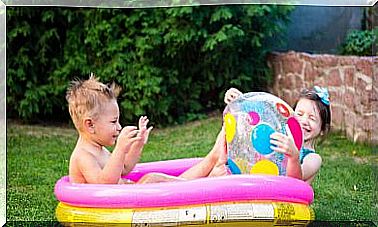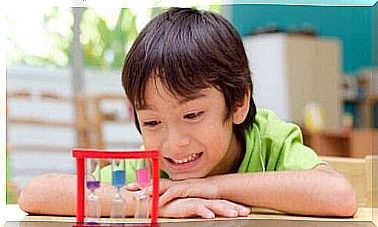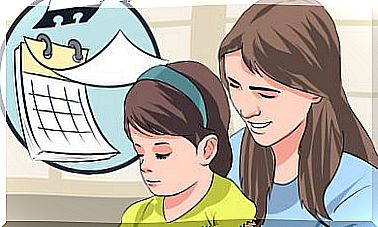Children With Low Frustration Tolerance: How You Can Help Them
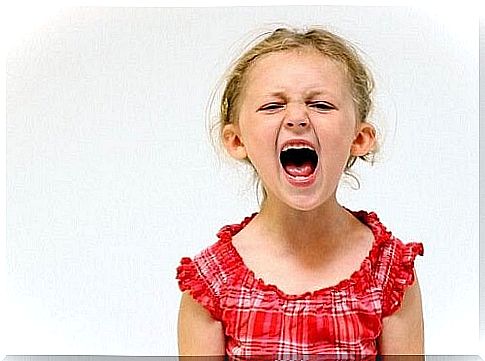
Frustration is an emotional response that occurs when a project goes wrong or a hope or desire is not fulfilled. Teaching our children to deal with this type of situation helps them become more patient and determined adults. In this article, we will present different ways to help children with low frustration tolerance.
In order to cope with different situations in their daily lives, children need to learn to deal with frustration from an early age.
It is important to understand that frustration is an emotional response that occurs when our projects go wrong or our hopes or desires are not fulfilled.
This generates emotions such as sadness, anger, anxiety and pain. Every child can react differently to this type of situation. Therefore, it is important to know how to identify children with a low frustration tolerance.
Characteristics in children with a low frustration tolerance
When we try to protect our children from frustration or give them everything they want all the time, we do nothing to help them.
One way to promote healthy development in children is to help them accept that life consists of both failures and successes.
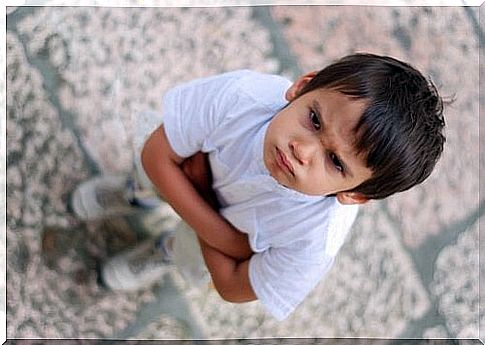
- Children with low frustration tolerance are more impatient and impulsive.
- They have a harder time controlling their emotions.
- Children with low frustration tolerance are very demanding.
- They try to satisfy their needs as quickly as possible. If they have to wait for something, they may start crying or have a rage.
- They are at greater risk of developing symptoms of depression or anxiety in the event of major difficulties or conflicts.
- These children have less ability to adapt and be flexible.
- They think that they deserve everything they want, and that the world revolves around them. They may perceive rules and boundaries as unfair. It’s hard to make them understand why they can not get everything they want.
- These children tend to think in “black or white”. They do not believe in compromise.
Reasons for low frustration tolerance
Some of the most common reasons why children have a low frustration tolerance are:
- Immediate satisfaction of all their needs. The children get everything they want, when they want it, so they never learn to wait for the satisfaction. They prefer to get a small reward now rather than waiting for a bigger reward.
- Lack of boundaries during their upbringing. It is often discovered that children with this behavior have grown up without boundaries and cannot take a “no”.
- Parents who make decisions on their behalf. Because choosing between different options involves a degree of risk, many parents begin to make decisions on behalf of their children, to avoid exposing them to disappointment.
How to help children with low frustration tolerance
Helping children with low frustration tolerance is very simple. Here are some tips:
- Pay attention to the specific reasons behind their reactions.
- Explain, as many times as necessary, that it is normal to make mistakes. Helping your children express their feelings is a way to help them deal with frustrating situations.
- Try to teach your children the difference between desires and needs. It will help them control their impulses.
- As an adult, you should be able to establish goals and boundaries, taking into account the child’s age and skills. That way, you can avoid unnecessary frustration.
- Sometimes, when dealing with a difficult situation, a little humor can be a great help.
Activities for children with low frustration tolerance
Therapies and exercises for children with low frustration tolerance can be excellent tools for stimulating a balanced development in the little ones.
Doing this now can help your adult son or daughter to be able to deal with frustration.
Therapies for children with low frustration tolerance
- Relaxation techniques. You can teach your children relaxation techniques, which will help them face the world with a more positive attitude towards adverse situations. Teach them to increase their frustration tolerance by relaxing in body and mind.

- Teach them to recognize frustration. It is important for children with low frustration tolerance to learn to identify the moment when the feeling of frustration takes over.
- Let your children know that they can ask for help. Teach them to look for solutions. If they feel frustrated when trying to do certain tasks, make sure they try something else before getting angry or giving up.
Other activities for children with low frustration tolerance
- Strengthen positive behavior. It is important that you praise your children when they respond to a frustrating situation with an appropriate strategy.
- Change the task. Show them another way to achieve what they want.
- Role play. You can make a game of a frustrating event. First, let them act out their frustration. Then, let them play the opposite role. Encourage your children to talk to themselves in a positive way to find the best way to solve the problem.
In many cases, tenderness and understanding are the best strategies for dealing with low frustration tolerance.
Because there are situations in life where frustration is inevitable, it is most important to give your children tools to recognize it.
This will make it easier for your children to channel their emotions and ask for help when they need it.

